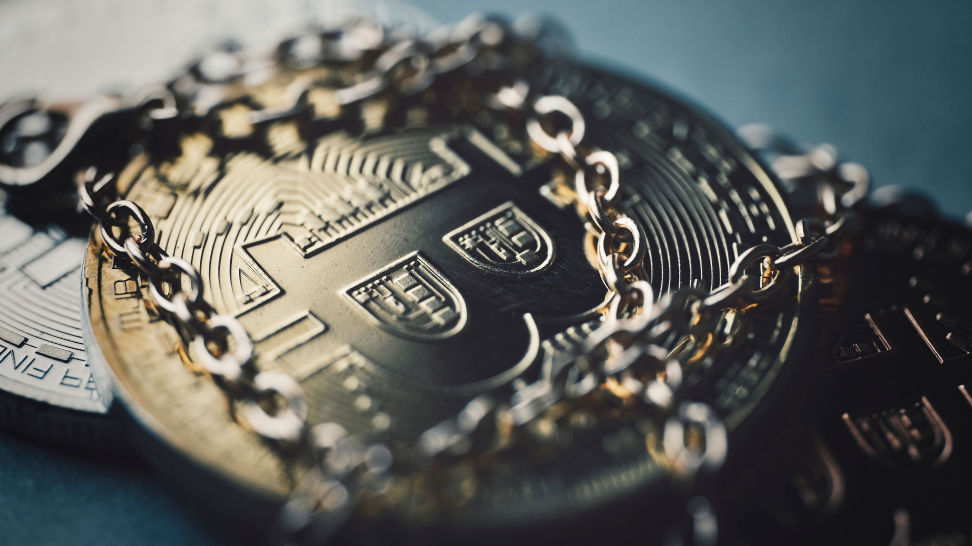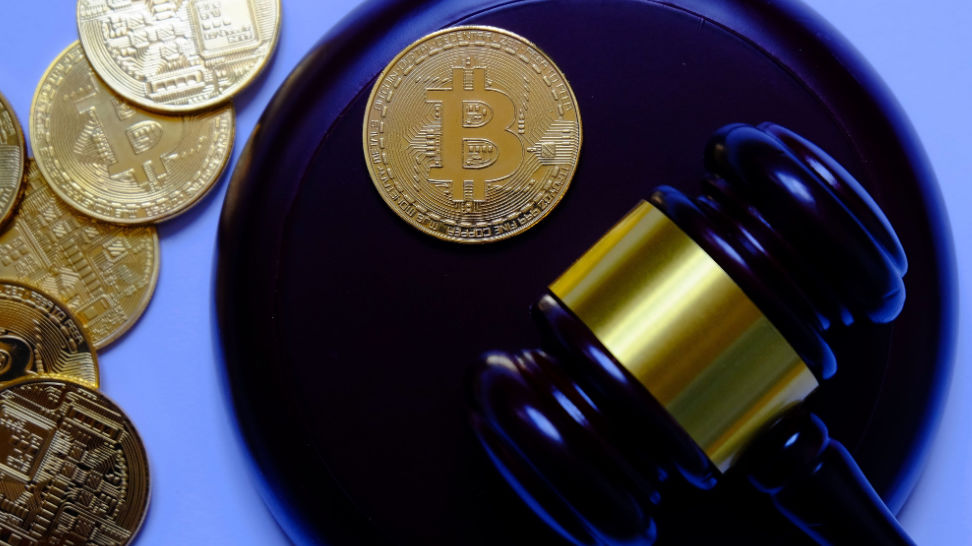Asset Protection and Cryptocurrency
Bitcoin and many other cryptocurrencies have seen drastic changes both in their prices as well as their popularity and enthusiasm among the investing public. The number of investable assets in the digital space continues to increase day to day. Many veterans to the cryptocurrency space have managed to amass large sums by investing or trading digital assets. Successful crypto investors need to be mindful of the need to protect crypto assets, whether from unreliable custodians, security breaches, or just the excessive market volatility associated with the crypto markets. However, these are not the only events that could put digital assets at risk.
Just like traditional assets such as cash and real estate, digital assets also suffer from legal liability risk. This means digital assets can be a target of legal action, resulting in the loss of cryptocurrency assets. Fortunately, asset protection strategies can help protect a variety of different types of asset classes from potential legal threats, and cryptocurrencies are no exception. This article will discuss the importance of legal asset protection strategies and how these apply to digital assets such as cryptocurrencies, tokens, NFTs, and others.
Why Cryptocurrency Asset Protection Matters
Many believe cryptocurrency by its very nature provides a degree of asset protection due to its apparently anonymity and potential to avoid third-party risk if the owner personally holds his coins or tokens in a physical wallet. However, the protection afforded by these benefits is not absolute, far from it. If an owner of cryptocurrency is involved in litigation or bankruptcy, a court can require disclosure of all assets, including any cryptocurrency owned.
Asset protection solutions continue to be of great importance in the cryptocurrency space. As people become more interested in this asset class, those with significant cryptocurrency holdings should make sure their wealth is protected. Just like traditional financial assets such as cash, bonds, or publicly traded securities, cryptocurrencies can be safeguarded by using asset protection solutions such as offshore limited liability entities and offshore trusts.
Are Cryptocurrency Assets Safe?
Anyone holding a significant amount of their net worth in cryptocurrency should take steps to ensure their holdings are as protected as possible. Bitcoin, Ethereum, and other popular cryptocurrencies are generally considered anonymous and untraceable. Transactions via the blockchain are anonymous in that they cannot be traced to a single individual. This does not, however, mean that any cryptocurrency assets do not need to be disclosed.
Unfortunately, the level of privacy offered by most cryptocurrencies is often overestimated or misunderstood. In reality, blockchains act as a public ledger of all transactions and the respective addresses involved. In addition, if a holder of digital assets faces legal action, he might be compelled by a court to disclose all financial information, including all cryptocurrency and digital assets.
This may come as a surprise to many who wrongly believe cryptocurrency is beyond the reach of the governments and courts, but bitcoin and other cryptocurrencies can be garnished by judgment creditors. Digital assets held in both hot wallets and cold wallets are subject to court orders. When cryptocurrency accounts are held in popular exchanges such as Coinbase, Gemini, FTX, and others, they are vulnerable to be frozen or seized in case of government action. If you hold an account in any of these institutions, it is likely you have already agreed to this risk by accepting their terms of service. Bitcoin and other cryptocurrencies are also not exempt assets in case of bankruptcy.
As the use of cryptocurrency becomes more widespread, creditors and bankruptcy trustees increasingly investigate crypto wallets or accounts. Government entities and regulatory bodies are also increasing their sophistication when it comes to taking possession of cryptocurrency. Earlier this year, the United States Department of Justice announced a landmark seizure of 94,000 Bitcoin valued at over U.S. $3.6 billion. As the case law continues to develop in this regard, we expect cryptocurrency garnishments and seizures in the U.S. to become more common. Those who are relying solely on the privacy of the blockchain to maintain their assets safe might be missing the bigger picture.
This means digital assets can be just as vulnerable to lawsuits and seizures as any other everyday assets. While it might be tempting to simply claim that all cryptocurrency wallets were tragically lost in a boating accident, making false claims in a legal setting is never a recommended strategy. Anyone who opts to simply not disclose these assets if compelled by a court could be committing contempt of court or worse. Failing to comply with a court order can result in fines and even imprisonment.
How Can Cryptocurrency Be Protected?
Fortunately, tried and true legal solutions exist that can help protect wealth from a variety of threats, and cryptocurrency can be safeguarded just like almost any other type of asset. One of the best strategies to protect cryptocurrency assets is through an Asset Protection Trust.
Having an effective Asset Protection Plan in place can help bring peace of mind in that those cryptocurrencies will be safe from potential legal claims and future creditors. There are different ways cryptocurrency holdings can be protected from legal threats. The best asset protection strategies available for cryptocurrency investors are an Offshore Trust, a Titanium Trust℠, and a Domestic Asset Protection Trust.
Before a legal claim ever arises, the owner can turn over management authority over his cryptocurrency holdings to a third-party trustee, thus leaving the cryptocurrency effectively out of his hands for legal purposes. When structured effectively this legal solution can provide remarkable asset protection for almost any type of holdings, including many of the most common cryptocurrencies.
Asset Protection trusts work by turning over management authority over cryptocurrency holdings and other assets to a third-party trustee, thus leaving the cryptocurrency effectively out of the settlor’s hands for legal purposes. This provides asset protection thanks to the legal separation between the settlor and the assets. In addition, asset protection trusts can utilize experienced cryptocurrency and digital asset custodians familiar with cyber security and cold storage custody. In some cases, the original owner of the cryptocurrency may remain the custodian of the asset even after the asset has been transferred into the trust.
Offshore Asset Protection Trust:
Offshore asset protection trusts are an excellent way to gain peace of mind, asset protection attorneys generally agree that they offer the highest level of security. Offshore trusts can provide the highest degree of legal asset protection available in the market. The key to an offshore asset protection strategy is to remove the assets from the reach of the courts in the U.S. and instead transfer jurisdiction to a much more defendant friendly location. When structured effectively, an offshore trust can provide remarkable asset protection for almost any type of holdings, including many of the most common cryptocurrencies and digital assets.
Blake Harris Law utilizes offshore asset protection trusts domiciled in a variety of jurisdictions including the Cook Islands and Nevis. When an offshore trust is executed and properly funded, its assets are not subject to U.S. court orders. This forces a potential claimant to file their lawsuit in a foreign court if they want to reach the assets. Naturally, the added costs and complexity of filing a legal claim abroad is often enough to discourage plaintiffs, not to mention the laws in these countries are much more favorable to defendants.
A few of the reasons Blake Harris Law utilizes Nevis and Cook Island Trusts are:
- Their legal system is based on English common law with legal institutions of a first world nation.
- These countries do not charge income taxes on assets held under a trust
- A two-year statute of limitations on all creditors that bring an action against you or the trust
- A Cook Islands Trust and a Nevis Trust can protect assets that aren’t located within these jurisdictions, and you can transact with them electronically
- Nevis and The Cook Islands do not recognize foreign judgments and as such an American claimant will have to file a case of fraudulent transfer in Nevis or the Cook Islands if they want to receive any assets from the trust.
Nevis Trusts and Cook Islands Trust are two of the safest offshore asset protection solutions for digital assets. A key element of an offshore asset protection trust is ensuring that the trust management has no ties or business presence in the U.S. For this reason, it is important that the Trust assets be removed to other offshore jurisdictions, such as Switzerland or Lichtenstein. Additionally, a Nevis Trust and a Cook Islands trust requires a Trustee physically present in that country. While not regulated by U.S. government bodies, offshore trustee companies are registered and regulated by the governments under which they operate.
The Titanium Trust℠:
A second form of asset protection that can add a layer of security to cryptocurrency is a Titanium Trust℠. The Titanium Trust℠ is Blake Harris Law proprietary Asset Protection Trust that takes a traditional asset protection trust and offshore trust one step further. Like titanium metal—strong and lightweight—the Titanium Trust℠ protects your assets in the United States but with the ability to move your assets abroad through a network of International Trust Companies, Protectors, and Bankers who work together to safeguard your assets.
One important factor that makes a Titanium Trust℠ so beneficial is that it enables the assets to initially remain in the U.S. This allows the assets to be managed domestically unless a legal threat arises. If any risk presents itself, Trust assets can be handed over to an offshore trustee that can assume management of the Trust. This results in anyone who wants to attack the Trust structure may be required to travel to the location where the Trust is domiciled to begin any legal claim or lawsuit they intend to pursue.
Thanks to this unique versatility, the Titanium Trust℠ offers the potential of offshore asset protection, but with the reduced costs and compliance requirements of a domestic asset protection trust.
Domestic Asset Protection:
Lastly, a Domestic Asset Protection Trust is a method of asset protection that will help limit your exposure to legal risk without having to utilize offshore entities or foreign trustees. Several U.S. states such as Wyoming, Nevada, and South Dakota have codified asset protection trust statutes into their state law and are increasingly popular destinations for asset protection trusts. Domestic trusts are generally more affordable than going offshore, and the cost of compliance is lessened since there are no IRS disclosures associated with holding assets domestically.
Having a trust domiciled in the U.S. provides the ability to work with U.S. based institutions that are regulated by U.S. laws, but it means domestic courts will have jurisdiction over the trust and could potentially reach trust assets. For this reason, Domestic Asset Protection Trusts work best when the grantor and the beneficiary are different persons, that means the original owner is gifting his or her assets using the trust to a family member or other trusted person. However, the case law surrounding Domestic Asset Protection Trusts has been generally inconsistent and for that reason they are not considered as secure as their offshore counterparts.
Conclusion
Cryptocurrency is a volatile and fresh new player in the financial investment market. Crypto assets and digital assets can continue to see steady progress and become a mainstream investment. Cryptocurrency and other digital assets will likely continue gaining popularity during the foreseeable future. Anyone holding considerable amounts of crypto assets should give serious consideration to their asset protection strategy.
The above information does not constitute investment or legal advice and is only meant to provide you with some information to consider when thinking long or even short-term at investing in the cryptocurrency marketplace. It is important to know how to keep your current and future assets safe from potential legal action like lawsuits, and Blake Harris Law can provide you with the personalized advice you need to do so. Blake Harris Law is a law firm, we render legal advice and we do not make any investment recommendations.
One must always do research and speak with a financial advisor before making a financial decision. If you would like to learn more about asset protection for cryptocurrency, contact us today by email at info@blakeharrislaw.com or by phone at 833-Ask-Blake. We always start with a free initial consultation and if you later decide to hire us, we would be happy to take payment in several different forms of cryptocurrency.






